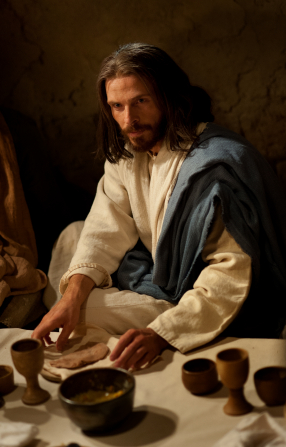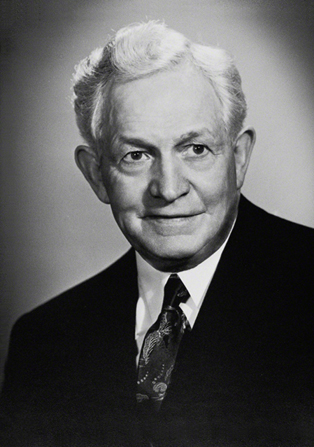We discussed the importance and symbolism of the Passover: the lamb, the blood, the sacrifice. Christ cleansed the temple and fed the five thousand on different Passovers and of course instituted the sacrament at the Last Supper.
"That is why every ordinance of the gospel focuses in one way or another on the atonement of the Lord Jesus Christ, and surely that is why this particular ordinance with all its symbolism and imagery comes to us more readily and more repeatedly than any other in our life. It comes in what has been called “the mostsacred, the most holy, of all the meetings of the Church” (Joseph Fielding Smith, Doctrines of Salvation, comp. Bruce R. McConkie, 3 vols., Salt Lake City: Bookcraft, 1954–56, 2:340)." (Elder Jeffrey R. Holland, "This Do in Remembrance of Me", October 1995)
A woman had been accidentally missed when the sacrament was passed. Right after the meeting she was invited into a classroom.
"A priesthood holder came in. He knelt down, blessed some bread, and handed her a piece. She ate it. He knelt down again and blessed some water and handed her a small cup. She drank it. Thereafter, Diane had two thoughts in rapid succession: First, “Oh, he [the priesthood holder] did this just for me.” And then, “Oh, He [the Savior] did this just for me.” Diane felt Heavenly Father’s love." ("That I Might Draw All Men unto Me", Elder Dale E. Renland, April 2016)
- How do you know you are worthy to take the Sacrament?
“For whoso eateth and drinketh my flesh and blood unworthily eateth and drinketh damnation to his soul.” (3 Ne. 18:28–29.)What does it mean to partake of the sacrament worthily? Or how do we know if we are unworthy?If we desire to improve (which is to repent) and are not under priesthood restriction, then, in my opinion, we are worthy. (Elder John H. Groeberg, The Beauty and Importance of the Sacrament, October 1989)

